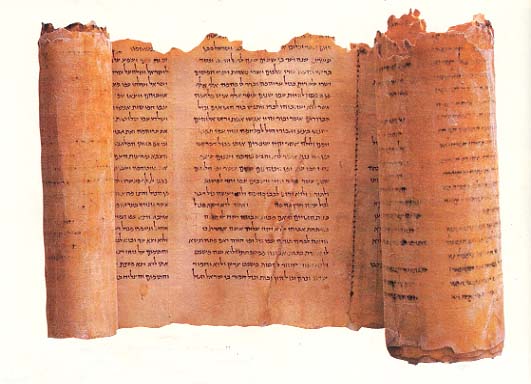Image Details

Courtesy Yigael Yadin
The “Statutes of the King,” as Yigael Yadin calls columns 56 through 59 of the Temple Scroll, present all the rights and duties of the king of Israel. Here in column 56, which follows closely the text of Deuteronomy 17:14–16, we see some of these rights laid down. “He must not multiply horses for himself, or cause the people to return to Egypt, for war … since I have said to you, you shall never return that way again.”
The almost identical verse in Deuteronomy reads, “Since the Lord has said to you.” The author of the Temple Scroll changed “the Lord” to “I,” so that God, not Moses, gives the people the law.
Other “Statutes of the King” described in the Temple Scroll are the king’s duties to organize an army and appoint officers, laws concerning conscription and taking booty during war, the king’s marriage, the judicial council and the king’s obligation to heed it, and more.
Yadin contends that these “statutes” are based on a book, now lost, that is mentioned in 1 Samuel 10:25: “Samuel explained to the people the rights and duties of the king and he [Samuel] wrote it down in a book which he laid before the Lord.”
